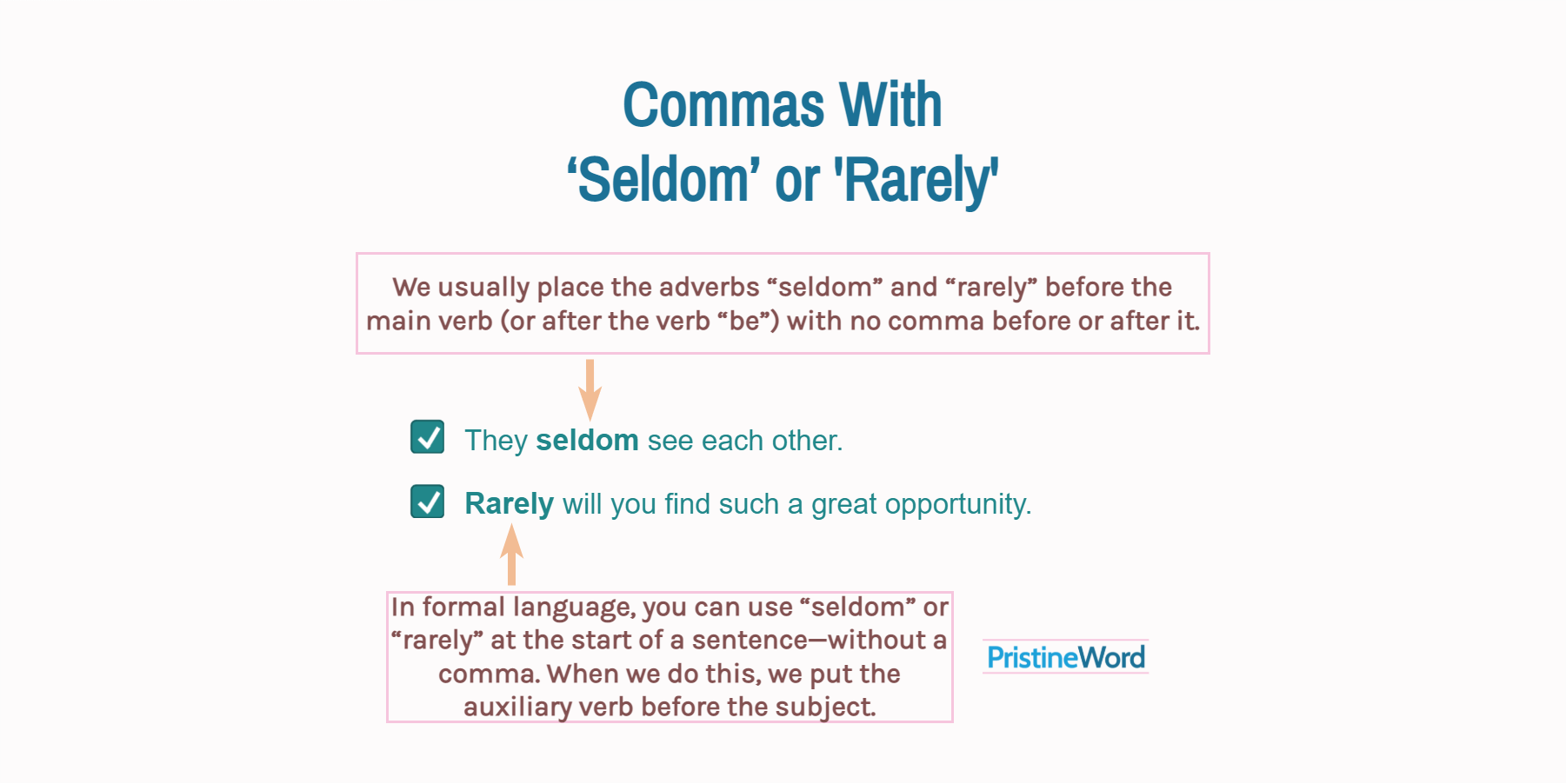We usually place the adverbs “seldom” and “rarely” before the main verb (or after the verb “be”) with no comma before or after it.
We usually place the adverbs “seldom” and “rarely” before the main verb (or after the verb “be”) with no comma before or after it.
They seldom see each other.
Unskilled workers have seldom finished secondary school.
In formal language, you can use “seldom” or “rarely” at the start of a sentence—with no comma. When we do this, we put the auxiliary verb before the subject.
Rarely will you find such a great opportunity in your whole life.
1. ‘Seldom’ or ‘Rarely’ in Mid-sentence
Regarding word order, we usually put the adverbs “seldom” or “rarely” in these positions:
- Before the main verb (e.g., "She seldom plays tennis.")
- Between the auxiliary verb and the main verb (e.g., "His theories have seldom led to success.")
- After the verb “be” (e.g., "Black bears are seldom dangerous.")
We do not generally use a comma to separate an adverb of frequency, such as “seldom” or “rarely”, from the verb it describes.
Robert seldom takes holidays because he is self-employed.
Robert seldom, takes holidays because he is self-employed.
Be aware that negative adverbs, like “seldom” or “rarely”, cannot be used in negative sentences.
Olivia rarely sees her family.
Olivia does not rarely see her family.
We do not use “seldom” at the end of a sentence.
2. Starting a Sentence With ‘Seldom’ or ‘Rarely’
In very formal situations, we can use “seldom” or “rarely” at the beginning of a sentence. When we do this, we use inversion; that is, we put the auxiliary verb before the subject.
Seldom have I seen such beautiful hair.
If there is no auxiliary or modal verb, we use do/does/did.
Seldom does she receive any apology when mistakes are made.
At the beginning of a sentence, we do not add a comma after these adverbs:
Rarely are things as good as you think they are.
Using “seldom” or “rarely” in front position makes the meaning of the adverb much stronger. It also sounds quite formal.
Seldom had I seen so many people willing to vote in a referendum.
If you don't want to give this impression, you can put it later in the sentence (in the normal position).
I had seldom seen so many people willing to vote in a referendum.

